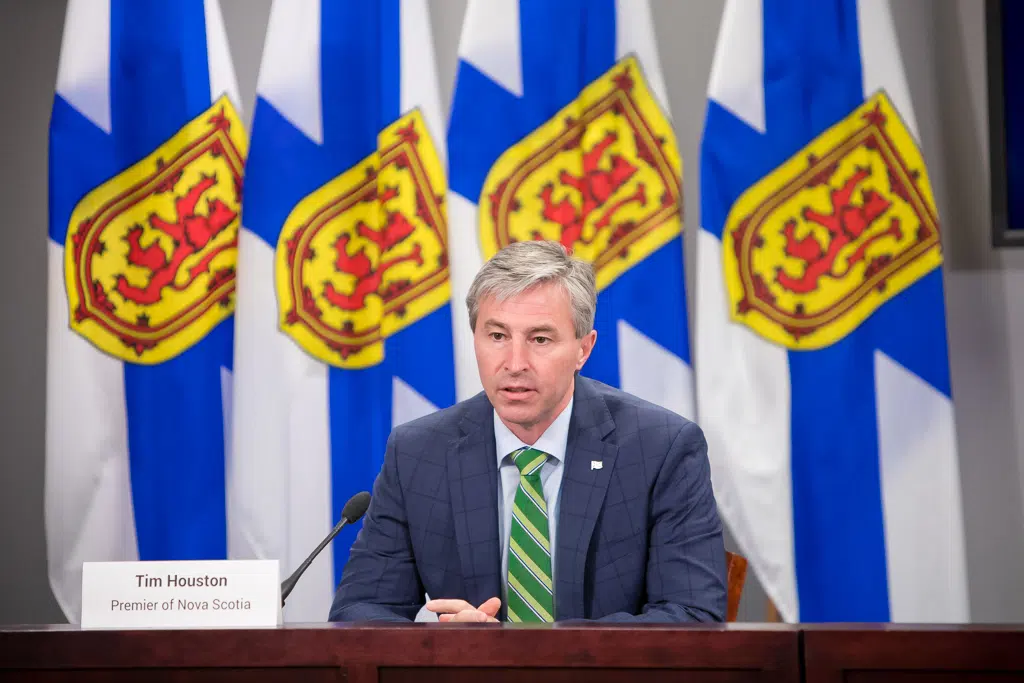The province is backtracking on a second aid package to help with high costs of living.
The premier says the government is now focused on finding sustainable solutions to combat the rising costs of food, fuel, and groceries.
Tim Houston says he’s aware Nova Scotians are struggling, but we have to be mindful of the long term.
“We have to realize there is a lot to balance here,” Houston says. “We need to make sure any measure we take is sustainable. A short-term measure could potentially have long-term ramifications, which are negative, on the ability to deliver services in healthcare, education, and in addictions support. We have to make sure we have a long-term view here. We know Nova Scotians are struggling and we’ll continue to have discussions about what is possible.”
Houston adds the government remains committed to healthcare and delivering services to Nova Scotians, citing the $500 million deficit.
Meantime, Finance Minister Allan MacMaster explains it’s difficult to roll out more support right now because the climbing costs of gas, housing, and food are a global problem.
“We’re looking for solutions that are sustainable, and that don’t jeopardize services that we’re trying to provide to the public,” MacMaster says. “I think about healthcare as something that has been a central focus for this government and our need to have revenues in place to support fixing the healthcare system, which is good for everyone.”
MacMaster adds they were hopeful the inflation stemming from Russia’s invasion of Ukraine would dissipate, but he explains that didn’t happen. He says talks regarding further support are ongoing with the federal government and other provinces.
In March, the province rolled out a $13.2 million support package for low-income Nova Scotians. It included aid like a one-time $150 payment to Nova Scotians on income assistance and to those who qualify for the Heating Assitance Rebate Program.
It also featured $1 million for Feed Nova Scotia and $200,000 for local food banks in the province.









